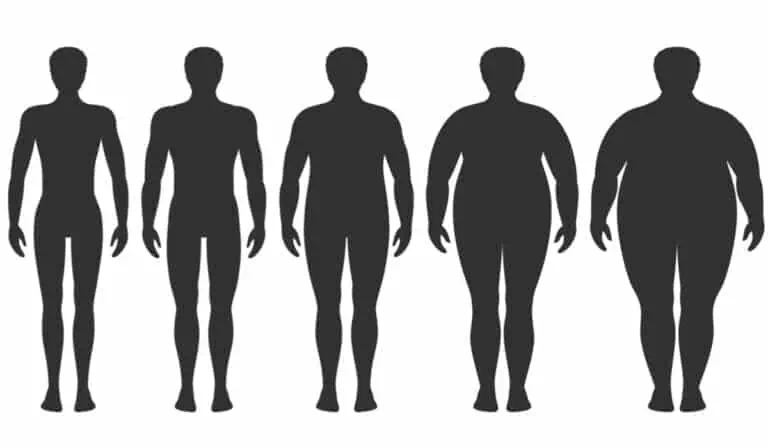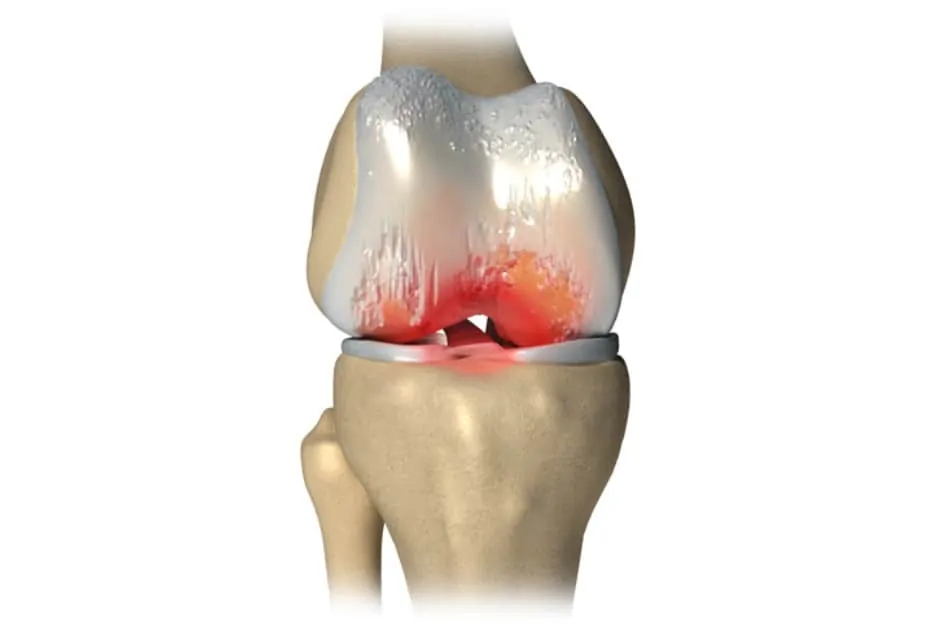If you are looking for a highly scientific expose about the mental state that causes someone to get to 400lbs I’m afraid I can’t help you. I also can’t answer why/how people get so fat beyond they eat more calories than they burn.
If you’re looking for something that is highly researched and full of facts and figures I’m afraid that, again, I must disappoint.
If, however, you are looking for some insight that comes from personal experience (and lots of opinions) concerning how a person could get to 400lbs (or more) then I hope this will be of use.
If you’re wondering how someone gets to be obese, I’m guessing that you’re not obese. Hopefully, I’ll be able to give you a personal enough view that you cannot only understand the issue but realize that, if circumstances were slightly different, you might be obese too.
Nature vs Nurture: 5 Contributing Factors To Become Obese
People who love to debate “nature vs nurture” in regard to humans are often just being pedantic and wasting their time.
If you’re looking for understanding (and solutions) then neither is important. There are, however, contributing factors to obesity that I can speak to, and, not surprisingly, they fall into both the nature and nurture camps.
The real answer as to how someone gets obese can be simplified down to two factors: calories and time.
Excess consumption of calories over a period of time is the path to obesity. The speed people move along the path can be affected by many things (which we’ll discuss) but, in short, eating too much makes you fat.
1. A Genetic Predisposition

Here is my opinion, no one has to be fat. However, some people have a genetic makeup that makes it much more likely. Having a slow metabolism or a tendency to store extra fat can make it much easy to gain weight and much more difficult to lose it.
Some people have a body that functions in a way that lets them live their life normally and stay relatively thin. They then judge people who are obese because they “must be doing something abnormal” if they are not getting the same results.
The truth is, most people who get to 400lbs were not being gluttonous or unusual. They were just living their life and slowly adding weight over time.
2. Injury, Disability, or Medical Concerns
The world is rife with stories of people who were athletic throughout college until they had an injury. When they were injured they kept eating like an athlete and slowly started packing on weight until they end up obese.
There are also people had hormone imbalances that lead to weight gain, mental health challenges that make it difficult to lose weight, insulin sensitivity, chronic fatigue, and a laundry list of other issues that lead to gaining weight.
While not every person who gets to 400lbs has an underlying medical concern to blame, they are real concerns that make it very difficult for many people. Don’t assume that you would be able to stave off weight gain if you were unable to be physically active for one reason or another.
3. Lack Of Knowledge
One of the reasons that obesity runs in families is a lack of education and self-care. Take the example of Amy and Tammy. They were told by their mom that if they “eat a sugar” they can cancel it out by drinking a diet Coke. 1,000 pounds of weight gain later we can obviously see that this isn’t true.
In our age of information overload, it’s not simply a lack of information that lets people get to 400 lbs or more. A lack of understanding leads to a lack of motivation. Add in the fact that people who have never known anything but obesity from childhood are typically accepting of their condition and don’t know that the grass is really greener on the other side of weight loss.
While gaining additional knowledge is typically not enough to break years of entrenched habits it is often enough to curb weight gain in the first place.
4. Lack Of Care/Motivation
With increasing levels of fat acceptance, many people are no longer embarrassed by their weight or size.
Obese supermodels such as Tess Holiday have worked hard to beautify unnatural levels of weight.
In my personal experience, you cannot change until you learn to accept yourself as you are. However, the truest form of self-love is self-care. Wanting the best for yourself.
Many people who get to 400 lbs lack the motivation to change because they do not grasp the gravity of the situation.
Many people can and do change once they gain the motivation through a life experience (such as having kids or almost dying…). This leads me to believe that the main reason they gained weight in the first place is that they simply didn’t care and weren’t motivated to do things differently.
I will also say, many people who are in great shape think that they have amazing willpower. They don’t. They are consistent because they enjoy it. Imagine going to the gym and eating healthy every day if you hated every minute of it. That’s what takes willpower.
5. An Unhealthy Relationship With Food
As humans, we are meant to eat for sustenance, enjoyment, and sociality. When we gravitate towards “eating our emotions” we are in trouble because, for better or worse, some of us have a lot of emotions.
At its best, food is simply a means of having a relationship with people. Many people leave people out of the equation and use food to have a relationship with food. In other words, they utilize food to fill an emotional void of loneliness, stress, anxiety, depression, etc.
This unhealthy view of food is often combined with an unhealthy eating schedule, poor food choices, and other choices that lead to weight gain.
The very nature of “comfort food” leads to weight gain. Have you ever tried to drown your sorrows in a nice kale salad? Not going to happen.
Recognizing a harmful view of food and correcting is in one of the core changes that help people who have ended up at 400, 500, 600 (or more) pounds lose weight.
What Does 400lbs Look Like?
So, let’s take a look into the lives of a couple of hypothetical fat people and see what it looks like.
But first of all, why don’t obese people just lose weight?
Well, people don’t change much. If they do change, they don’t change very fast.
The presence of social media personalities who have lost 100+ pounds belays the difficulty in doing it. How many people do you know that have actually changed their body shape for the better? I can’t name a single person I know personally that has gone from morbidly obese to fit. I’ve seen it on TV, for sure, but its rarity leads me to believe that there must be a lot of issues that prevent it.
Even if a person does make the mental shifts necessary to lose weight it can be difficult to do so.
Appreciate this scenario:
You have let yourself get to 400lbs. You are always fatigued and your joints hurt from standing too long or walking around. Changing your eating habits takes a massive amount of will and leaves you hungry all the time. What’s more, it depletes your motivation, makes you cranky, and leaves you without one of your main coping mechanisms.
Exercise is an intimidating experience. When you go to the store people stare at you and wonder why you don’t go to the gym. When you go to the gym people stare at you and wonder why you’re at the gym if you’re so fat. Exercise at home is very difficult because there is no cheap exercise equipment that will support your weight and you don’t have a social network that supports healthy weight and change. Your entire family is obese and they don’t care.
You know you’re facing at least two years of hunger and exercise to get down to a weight that people don’t consider obese. Even if you do manage to make life changes you face push-back from your “friends” and will have to hear annoying comments about it for the rest of your life.
Your health issues mean that it’s harder than average for you to lose weight. You will have to have the capacity to make massive changes in your life while in a mental state that is not conducive to change. So what difference does it make if you go over your calories today?
The point I’m making is that it’s not that unusual for a person to get to 500 lbs and not have the capacity to change. Even if you understand precisely what is required it doesn’t mean you have the ability to do it consistently.
I’ll give you one more example (okay, two) to show you how easy it could be for the average person (or you) to end up morbidly obese:
- You are a fit male runner. You weigh 165 pounds but consume almost 3,000 calories per day to make up for your levels of activity. One day you fall while trail running, tear all the tendons in your ankle and sprain your back. You’ll be unable to walk for 3 weeks and unable to do any significant exercise for a year. During that time you don’t change your eating patterns. What’s more, you add in 2 beers every night a candy bar or ice cream three times per week. A year later, you have nearly doubled your body weight. You could add more than 3 pounds per week in this relatively normal scenario.
- You are a new mom. While pregnant you worked out and only ended up gaining about 20 pounds. During the first year of your child’s life, you are constantly stressed and have no time for exercise as all your time is spent on your new baby and staving off postpartum depression. You snack throughout the day and have a nightly glass of wine. On your child’s first birthday, you now weigh 237 pounds. Up almost 85 pounds from your pre-pregnancy weight of 155.
And that is in just one year. Most people who get to 400 lbs or more take many years to do so.
If you started at 150 pounds and had a 32oz Coke with a Snickers daily you could add over 50lbs per year. And that’s assuming that you ate at maintenance otherwise (which most people don’t).
While weight gain doesn’t necessarily work in a linear fashion (and most people will see a plateau at some point) these are simply meant as food for thought. Given the right circumstances, nearly everyone could easily up being obese.
Conclusion
At the end of the day, I will just say the people who end up 400lbs or more often don’t have a life radically different than yours. We just lived our lives and didn’t correct poor choices over a period of time.
If you are in the same boat as I am…get out before it sinks! (yep, that’s a fat joke…)
But in all seriousness, the approach I had been able to maintain is to make small changes over time. I have accepted that, for now, I will be fat. However, if I eat 200 calories below my maintenance per day I will lose hundreds of pounds (and add years to my life) over the next few years.
I’d rather not die before my kids graduate high school.
So, if you’re obese: love yourself as you are and make the changes you need to for proper self-care. You can do it. It’s not all about weight loss. Numbers are just numbers and overall fitness level and quality of life are far more important than overall weight.
If you’re not obese, be nice. You probably haven’t avoided obesity because of anything amazing you’ve done.








